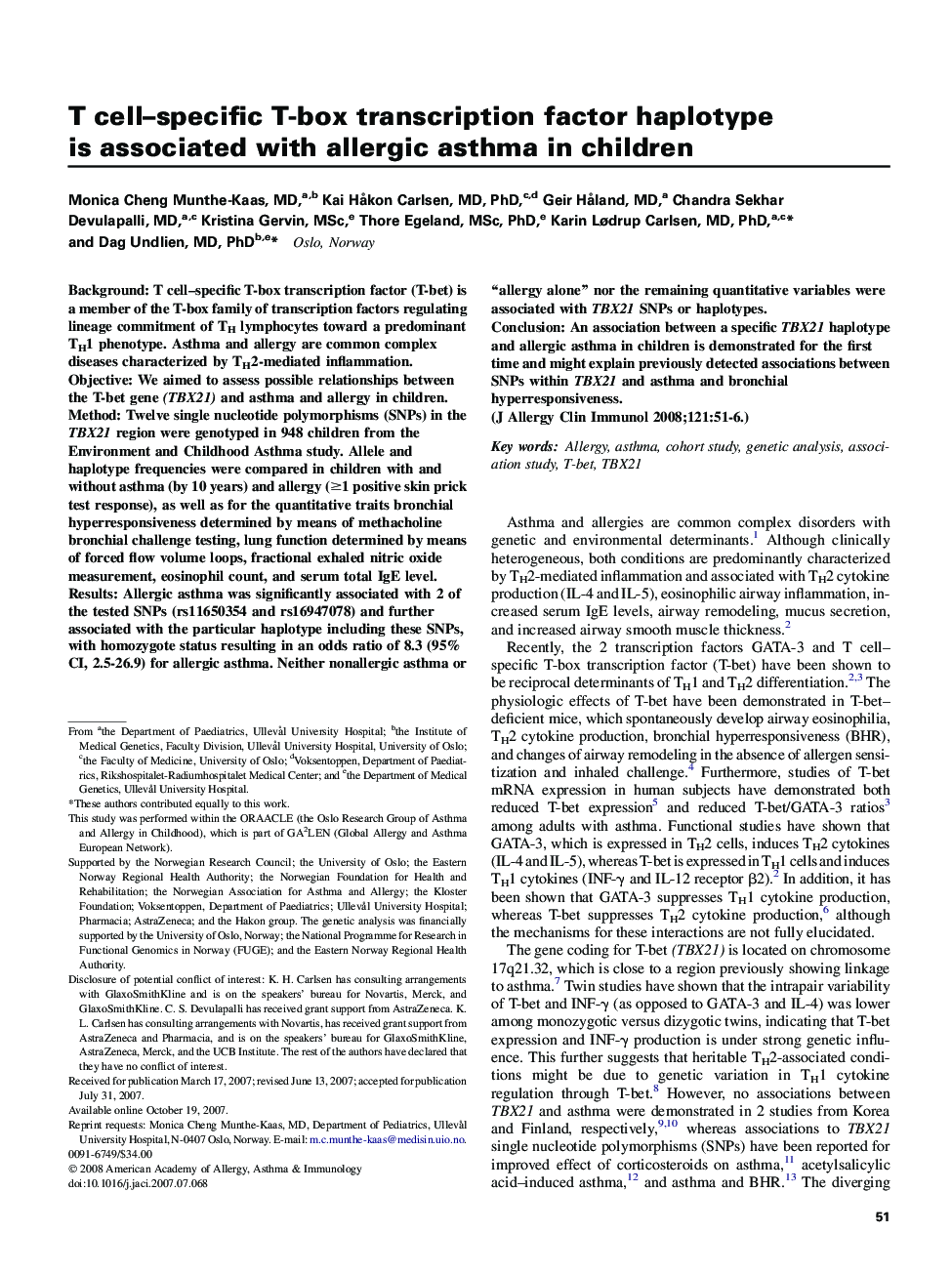| Article ID | Journal | Published Year | Pages | File Type |
|---|---|---|---|---|
| 3200988 | Journal of Allergy and Clinical Immunology | 2008 | 6 Pages |
BackgroundT cell–specific T-box transcription factor (T-bet) is a member of the T-box family of transcription factors regulating lineage commitment of TH lymphocytes toward a predominant TH1 phenotype. Asthma and allergy are common complex diseases characterized by TH2-mediated inflammation.ObjectiveWe aimed to assess possible relationships between the T-bet gene (TBX21) and asthma and allergy in children.MethodTwelve single nucleotide polymorphisms (SNPs) in the TBX21 region were genotyped in 948 children from the Environment and Childhood Asthma study. Allele and haplotype frequencies were compared in children with and without asthma (by 10 years) and allergy (≥1 positive skin prick test response), as well as for the quantitative traits bronchial hyperresponsiveness determined by means of methacholine bronchial challenge testing, lung function determined by means of forced flow volume loops, fractional exhaled nitric oxide measurement, eosinophil count, and serum total IgE level.ResultsAllergic asthma was significantly associated with 2 of the tested SNPs (rs11650354 and rs16947078) and further associated with the particular haplotype including these SNPs, with homozygote status resulting in an odds ratio of 8.3 (95% CI, 2.5-26.9) for allergic asthma. Neither nonallergic asthma or “allergy alone” nor the remaining quantitative variables were associated with TBX21 SNPs or haplotypes.ConclusionAn association between a specific TBX21 haplotype and allergic asthma in children is demonstrated for the first time and might explain previously detected associations between SNPs within TBX21 and asthma and bronchial hyperresponsiveness.
